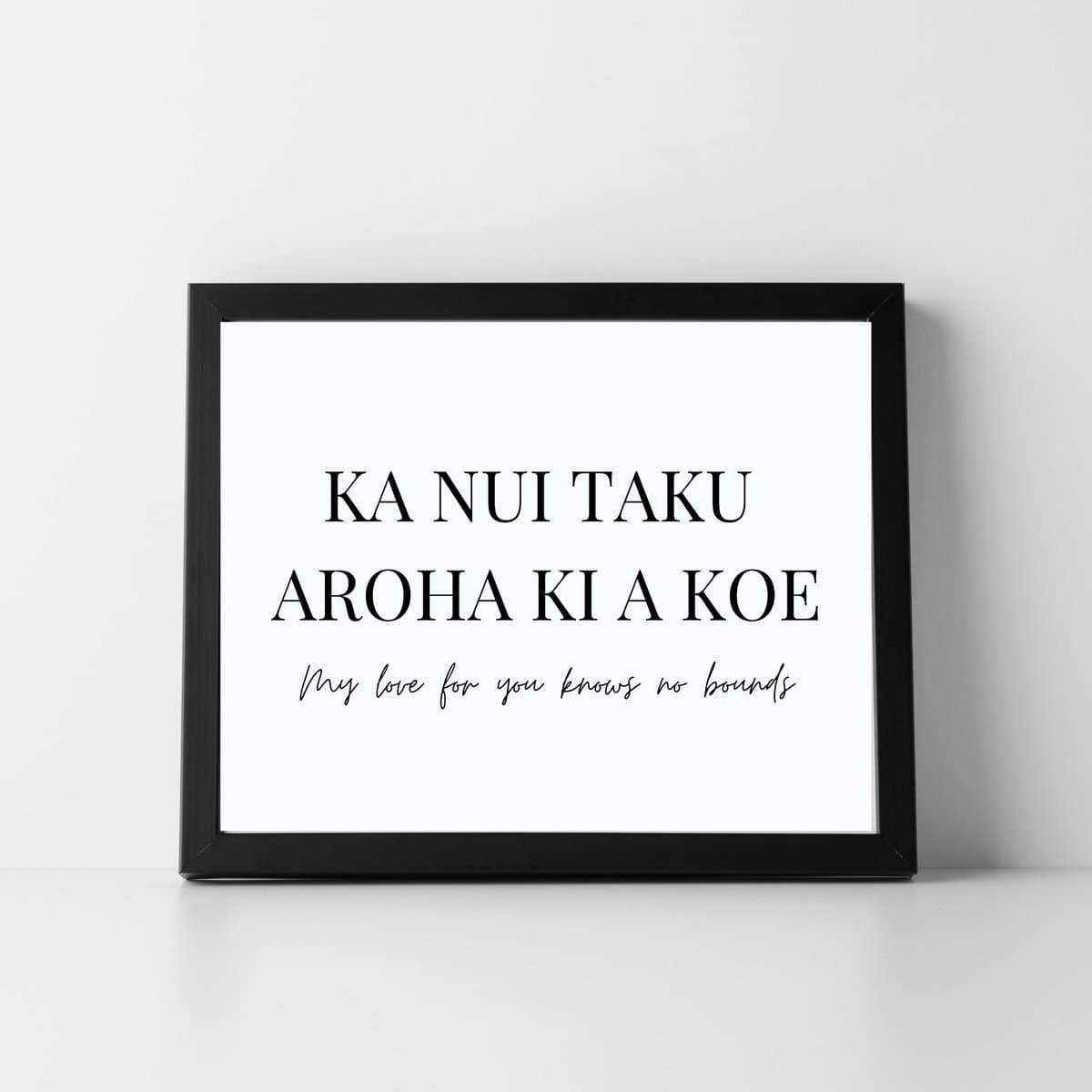How to Express Your Love in Maori: A Parent’s Guide to Saying “I Love You”
Hey there, lovely parents! Are you looking to sprinkle a little cultural magic into your expressions of love? Well, you’re in the right spot! Saying “I love you” is a universal phrase that resonates with everyone, but today we are exploring how to convey that same powerful sentiment in the beautiful Maori language.
The Maori language, or ‘te reo Maori’, is a treasure of New Zealand, brimming with history and emotion. It’s not just words; it’s the spirit, the culture, and the heart of the Maori people. By teaching yourself and your children how to say “I love you” in Maori, you’re embracing a culture rich in history and connecting to the people who first navigated to the lush lands of Aotearoa.
The Maori Way to Say “I Love You”
To start off, let’s get right to it: The phrase you’re looking for is “Aroha nui”. But before you go saying it left and right, let’s dive a little deeper into what it really means and how to pronounce it correctly, shall we?
The Meaning of Aroha
The word Aroha is often translated to “love”, but it’s much more profound than a simple four-letter English word. Aroha embodies compassion, affection, sympathy, and empathy. It’s the kind of love that seeks to nourish and protect, the love that is patient and kind, the love that flows from the depths of the heart.
When you add nui to Aroha, meaning “big” or “important”, it amplifies the term, expressing a deep and vast love. So when you say “Aroha nui”, you are essentially saying “Big love” or “much love” to someone you care deeply for.
Pronunciation is Key
Now, how do you pronounce “Aroha nui”? Let’s break it down.
- Aroha is pronounced as “ah-roh-ha”, with the ‘r’ having a slight roll and the ‘h’ being quite soft.
- For nui, it’s “new-ee”, with stress on the first syllable.
So together, “Aroha nui” is pronounced “ah-roh-ha new-ee”. Perfect! You’re already on your way to expressing your love in a way that’s as unique as it is heartfelt.
Digging Deeper into Love – Maori Style!
Apart from saying “Aroha nui”, there are other ways to express love and affection in Maori:
- Kei aku nui, kei aku rahi: It means “To my beloved” or “To all my loved ones” and is a way to address a group of people you deeply care about.
- Hei tiki: While not a phrase, it’s a carving commonly given as a symbol of love and fertility. Surprise your loved ones with this meaningful gift!
Language is more than just a way to communicate; it’s a gateway to understanding culture, traditions, and the essence of a community. By teaching your children to express their love in te reo Maori, you’re not only showing them how to say ‘I love you’ in another language—you’re also teaching them about respect, diversity, and cultural appreciation.
Stick around as we explore more about the significance of love in Maori culture, additional phrases you can use, and fun activities to incorporate te reo Maori into your family’s daily life. Learning to say “I love you” in Maori can be a beautiful journey for you and your children, so let’s continue to spread the Aroha!

How to Express Your Love in Maori: A Parent’s Guide to Saying “I Love You”
Kia ora, wonderful parents! Do you wish to weave the threads of te reo Maori into the tapestry of your affection? There’s something truly special about learning to express love in another language; it’s like giving your heart an additional voice. And, when the language is as rich and melodious as Maori, those three little words – “I love you” – gain an even deeper resonance.
Te reo Maori, with its deep connection to the indigenous culture of Aotearoa (New Zealand), carries the whispers of ancestral wisdom. By introducing your family to this language, you’re not simply teaching them new words; you’re inviting them to feel the pulse of an age-old culture. Let’s embark on this heartwarming adventure – it’ll be fun, it’ll be meaningful, and it’ll bridge hearts!
Five Things Every Parent Should Know When Saying “I Love You” in Maori
Before you and your little ones start practising these beautiful Maori phrases, here are five things to bear in mind:
1. Embrace the Culture Behind the Words
Understand that each Maori word is steeped in cultural significance. So, learning the phrases is just one part; the other is appreciating the traditions and values they represent. Share stories and cultural tidbits with your children to create a richer learning environment.
2. Pronunciation is Important
Te reo Maori is known for its melodic flow. Proper pronunciation is essential to ensure the beauty and meaning of the words remain intact. Spend time listening to native speakers and practice together with your kids for an authentic experience.
3. Use it in Everyday Life
The more you use the language within your family, the more naturally it’ll come to your children. Embed te reo phrases in your daily routine, make it playful, and let your kids see and feel its relevance beyond formal learning.
4. Start Simple and Build Up
Begin with straightforward terms and phrases. Once these are mastered, you can move on to more complex expressions. This builds confidence and a sense of achievement, encouraging further learning.
5. Connect with the Maori Community
If possible, engaging with the Maori community or finding a Maori language group will greatly enhance your family’s experience. It’s a wonderful way to show respect and learn first-hand about the language and culture.
Aroha: The Heartbeat of Maori Expression
With “Aroha nui” tucked warmly in your kete (basket), be ready to explore and practise more heartfelt expressions. Remember, these phrases are more than just words; they’re a cuddle with every utterance, a way to imbue your child’s world with the essence of Aroha.
- Whaia te iti kahurangi – “Seek the treasure you value most deeply,” often used to express support and encouragement borne from love.
- Toku whaiaipo – “My sweetheart,” a term to endearingly address your child with tenderness.
- E te tau – “My darling,” a warm and affectionate term that can be used within the family.
These loving phrases can be accompanied by actions – gentle embraces, a reassuring pat on the back, or the traditional hongi, where foreheads and noses are pressed together to share a breath of life, symbolizing unity.
Then, there’s the enchanting world of waiata (songs) and haka (dances); imagine the joy as your family comes together to express love through these traditional arts! There are children’s waiata that are simple and convey messages of love, perfect for singing along in the car or at bedtime.
Infusing Daily Life with Te Reo Maori
Every day presents beautiful opportunities to say “I love you” in Maori. Start with morning cuddles, using a simple “Aroha nui, e taku tamaiti” (“Much love, my child”). Craft bedtime stories with Maori songs and phrases. Over time, these experiences will weave te reo Maori into the very fabric of your children’s lives, nurturing a lasting love and connection.
And, most importantly, let this journey be guided by joy. Laugh together at the tongue-twisters, celebrate getting the words right, and cherish the unity that comes from learning together. After all, the best way to say “I love you” is in a language that speaks directly to the heart – and in learning te reo Maori, you’re doing just that.
See more great Things to Do with Kids in New Zealand here. For more information see here
Disclaimer
The articles available via our website provide general information only and we strongly urge readers to exercise caution and conduct their own thorough research and fact-checking. The information presented should not be taken as absolute truth, and, to the maximum extent permitted by law, we will not be held liable for any inaccuracies or errors in the content. It is essential for individuals to independently verify and validate the information before making any decisions or taking any actions based on the articles.




